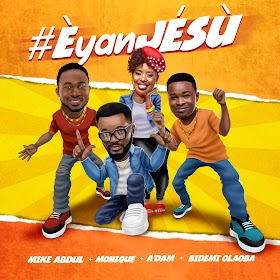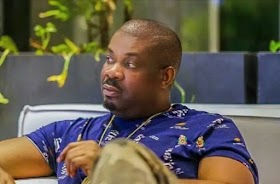
Chukwudi Akasike’s
adventure to unravel why second hand clothes are called Okrika, the
name of a town in Rivers State, yields more questions than answers
Welcome to Okrika, a town in the
southern part of Port Harcourt, Rivers State. Before now, and
immediately after the abolition of slave trade in 1830, Okrika served as
a port for the exportation of palm oil and the major occupations of
its people were fishing and farming. But the area has developed to an
extent where bridges are built to connect small communities to improve
intra-communal relationship.
Though in the 17th Century, the area was
also used by slave traders to buy and sell human beings, many people,
especially in the western part of the country, associate the name
‘Okrika’ with second hand materials, especially clothes and shoes. This
was to the point that, in the past, when someone was going to the market
to buy a dress, his neighbour could ask him whether or not he would buy
a new piece or an Okrika.
When our correspondent thus visited the
town on Tuesday, part of his expectation was to see a big market where
used materials flourish. After all, this is the impression that many
Nigerians still have about the town. But apart from the fact that no
such huge industry was found, the natives say the tag is simply
misleading. They reject it, although there are indications that Okrika
used to have a relatively big market for used clothes.
One of the community leaders in the Daka
area of the town, Chief Sunday Alatoru, indeed described the linking of
second hand clothes to Okrika people as being unfair. Alatoru, who is
in his 70s, said though some of the people, especially women into the
business of purchasing and selling second hand clothes, the trade had
nothing to do with the origin of the name, Okrika. He disclosed that
what is now called Okrika used to be ‘Wakrike’, adding that the people
of the area migrated from Ijawland. His main argument is, however, that
‘Okrika’ is not a derivative of used items.
“It is a wrong idea. Okrika has nothing
to do with second hand clothing. Okrika has its origin from Ijaw so many
years ago – some say 800AD, some say 1200AD. Those who deal in second
hand clothing are women. Our people were seen buying most of these
second hand clothing, especially in the Abriba area. So, we were
associated with sales and purchase of second hand clothing.
That is how it is, but not that we
derived our name from that business and that is quite recent. Wakrike is
our real name. The period when people were migrating all over Nigeria,
the northerners migrated from somewhere, the Oduduwa people migrated
from somewhere. The Igbo know their origin. Everybody knows his origin.
For us, our origin is Ijaw.”
From Wakrike to Okrika
On how the people came to settle in
Okrika, while some other people say it is one of the colonies of the
great King Jaja of Opobo, others say some Ijaw people settled in the
area many years ago. There is also the claim that Okrika is an Igbo
settlement. Not all these statements can be true at the same time. But
one fact that cannot be mistaken is that the people of the area have a
strong link with the Ijaw, who migrated from some parts of the country
and settled in today’s Rivers State.
It is also said that the Europeans came
into Okrika through Bonny and brought in fairly used clothes, in
exchange for local gin. The tale also indicates that the indigenes, in
the olden days, were excited to engage in such trade by barter by
giving away their local gin – also known ogogoro or kai-kai
– to the white man, to get his beautiful, but fairly used clothes. But
some of the indigenes further argued that this is untrue.
According to them, the original name of
Okrika is Wakrike. The colonialist is said to have changed the name to
Okrika for pronunciation convenience. Wakrike means ‘We are no different
from others’ or ‘We are one’.
Based on one’s observation, today’s
Okrika is actually a group of people united in many areas, especially in
fishing and farming. Alatoru, however, lamented that fishing,
which used to be the major occupation among the people, had since been
abandoned as a result of the high level of pollution caused by the
activities of oil companies and a refinery around the area, precisely in
Alesa Eleme. He explained that oil companies often flushed waste
products into the sea where the people fish, maintaining that such waste
products had destroyed the aquatic and their lives; as a people.
“Our main occupation is fishing. But it
is more or less abandoned because the sea is dead. If you go there, you
would notice that all the waste products from the refinery are flushed
into our creeks, killing all the fish and other aquatic products. The
sea is completely dead and we have no source of livelihood again. This
has affected our people in a very bad way as our source of livelihood is
damaged, not only by the refinery, but the oil companies.
“If you go out now, you would see
pipelines crisscrossing and they often explode. You will see the
spillage for months before they come and clear it. They don’t clean it
after they manage to close the source of the leakage. Again, the vessels
coming from outside produce waste, which they release into the sea. All
of these have damaged our source of livelihood, which is fishing and,
as it is, we are helpless,” Alatoru, a retired teacher, said.
Another elder in the area, Mr. James
Amakiri, expressed dissatisfaction over the level of neglect which, he
noted, the area had continued to suffer, while pollution remains their
lot. Amakiri pointed out that many youths there were jobless due to the
pollution of rivers in the area.
Echoes of militancy
Amakiri said, “Environmental pollution
is high here and nobody cares for us. There are no jobs. The youths are
desperate. You have a family of graduates who yet have nothing doing.
So, their frustration is so much and this results into militancy. So, we
expect the Federal Government to look into the problem of pollution and
ensure the development of this area. We want industries established in
our area so that people can find jobs.
“This oil industry has come to stay. You
can’t stop it and allow the sea to go back to how it used to be. As
long as the oil industry will continue to be, the sea will continue to
degenerate. So, we need alternative industries and occupations for our
people. It is for our youths to find employment. Otherwise, militancy
will be worse than what we had before, because a hungry man is an angry
man.”
Many names of Tamuno
Amakiri, who described the culture of
the people in the past as beautiful, explained that the advent of
Christianity as a religion impacted negatively on their culture.
According to him, the people recognised the existence of God even
before the coming of the white man.
He said, “We have a beautiful culture.
But the Christian movement has impacted on our society and affected our
culture. Most of the values are now written off by the Christians who
replaced them with new ones. Otherwise, we have a very good culture and
we were happy with it. When they conquered us, they brought their God to
be our God. Before them, we had our own God.
“The Igbo call Him Chukwu, the
Yoruba and the Ogoni people have several names for Him; the Jews have
several names they call God. Any name you give to God, He answers. In
Okrika, we call him Tamuno. Some call him Dagbo, Temegbo,
among others. But He answers whichever name you call Him. The Jews
themselves have several gods. Eventually, they call Him Jehovah. Here,
we have the god that provides the fish in the Atlantic; we have the God
who is standing by at the gate of the door.”
Dikibo and the canoe
At the river side in Ibaka, Okrika Local
Government Area, Francis Dikibo was seen inscribing a name on a canoe –
a job he has been doing for the past 15 years. He said he earned as
high as N5,000 on each beautiful inscription he made on a wooden boat.
The boats are used to convey people from Okrika to Port Harcourt, as a
journey by boat is faster than a trip by bus or any other form of road
transportation.
Okrika is a sandy area and many buildings
are being constructed around the Ibaka axis of it. At the loading bay,
it was not difficult to see many passengers waiting to travel to Port
Harcourt, the Rivers State capital, with speedboat.
New security threats in Niger Delta
The Okrika elders’ argument brings to
mind the fear that militancy in the Niger Delta may not have totally
become a thing of the past. This is despite billions of naira that the
FG has spent on the Amnesty Programme. Apart from the fact that the
problem of environmental degradation has yet to be generally addressed,
illegal bunkering in the Niger Delta has continued to rear its ugly
head. Oil theft is rampant in the area.
And through this illegal act, the nation is losing billions of dollars.
It got to a head in July when Governor
Seriake Dickson of Bayelsa State had to express his concern. He did not
only describe oil theft as a threat to national security, he also noted
that those involved in it use the proceeds from the illegal sale of
crude oil to finance shady operations.
He said this was what was responsible
for the proliferation of arms in the Niger Delta. He had said,
“Militants who engage in oil theft use it to finance their operations,
recruit members, and buy arms and ammunition.”
Dickson said this when he received the new Flag Officer Commanding Central Naval Command, Yenagoa, Rear Admiral Sidi-Ali Usman.
He said there had been rising incidence
and sophistication of illegal bunkering, sea piracy and pipeline
vandalism. This, he added, had negative consequences on the nation’s
economy.
Dickson said, “What is going on is more
of a threat to national security than even the loss of revenue that
everybody is shouting about.
“Let me tell you that all the violence,
brigandage and criminality that we experience in the Niger Delta states,
particularly Bayelsa where I know more, have their roots in the
activities in the creeks.”

















0 Comments